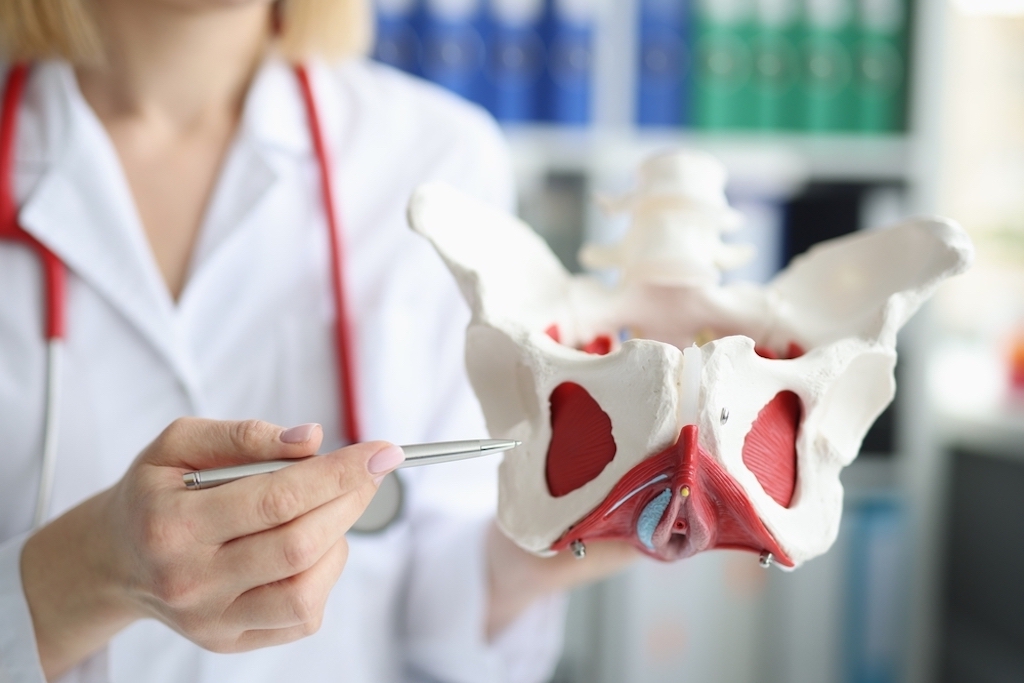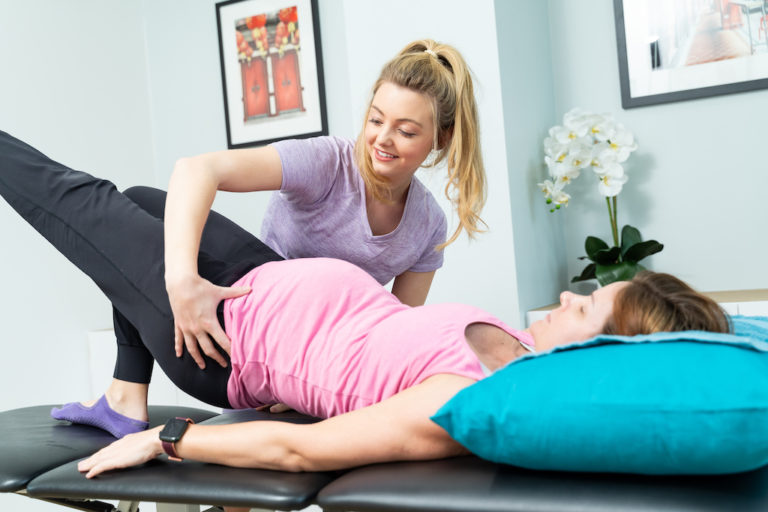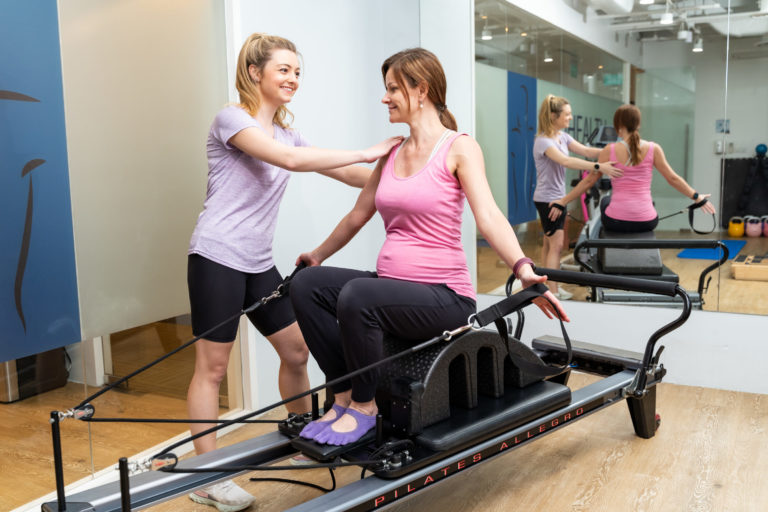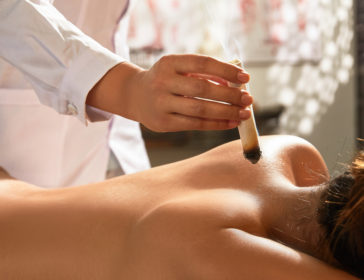
Health
- SINGAPORE
Learn How Physiotherapy Can Help Female Incontinence With Prohealth In Touch Physio
Get Help For Female Incontinence

Did you know that female incontinence is a common issue that affects 1 in 3 women? Incontinence can occur due to prolonged underuse or overuse of pelvic floor muscles, causing weakness.
Suffering from incontinence? Physiotherapy can help! Book an appointment with Prohealth In Touch Physiotherapy!
Established in 2005, the clinic boasts a team of internationally-trained physiotherapists and empowers patients to achieve their rehabilitation goals. The clinic also specialises in women’s health, including pre- and post-natal physiotherapy, treating pelvic instability, osteitis pubis, back pain, sacroiliac joint dysfunction, sciatica, and diastasis.
We speak to Kate McCormack, a women’s health physiotherapist at Prohealth In Touch Physiotherapy Clinic, about different types of female incontinence and how to treat it.
-

Introducing Kate McCormack
Kate is experienced in treating postnatal injuries, including post-labor tears and haematomas, episiotomies, pain, and tight pelvic floor muscles. She can also assess and treat incontinence resulting from stress on the pelvic floor, overactive bladder and prolapse. Kate provides a thorough assessment with treatments including manual techniques, education and additional devices to strengthen the pelvic floor.
-

Types Of Incontinence
Incontinence can have many stages, from leakage of small volumes, to the inability to pass urine or stools from the body. It's important to identify the category that you fall into.
Types of incontinence include stress incontinence, or urine leaks when there is increased pressure on the bladder caused by excessive coughing, sneezing, laughing, running, jumping, and lifting heavy objects.
Urge incontinence is the inability to control the bladder, such as going to the toilet too frequently when the bladder isn’t full or holding it in for a prolonged period.
Mixed incontinence, meanwhile, is a mixture of both stress and urge continence.
There is also incontinence due to prolapse. A bladder prolapse may cause incontinence or difficulty in passing urine or motion fully. It usually occurs when there is weakness in the vaginal walls and cervix.
-

Physiotherapy For Incontinence
If you think you’re suffering from incontinence, don’t worry – there are different ways to address it. Seek help from a professional like Kate, who will propose an individualised treatment plan depending on your diagnosis and lifestyle.
You'll also be given advice on how to adjust your dietary habits and posture, and an exercise program tailored to address your specific problem.
Where To Find It:
- Prohealth In Touch Physiotherapy
- 22 Malacca Street, #14-02 RB Capital Building, Singapore 048980
- +65 6533 0968, +65 9664 3243 (WhatsApp)
- admin@intouchphysio.com
- https://intouchphysio.com
Want More?
Little Steps Asia knows what families need.
Sign up for our email newsletters to get the most out of Asia!
-
Singapore
Singapore Ballet Presents Peter & Blue Treasure Hunt
A Ballet That Children Will Love!2022 May 23 - 2024 May 26 -
Singapore
Roll, Glide, Indulge: The Xperience – Clarke Quay’s Ultimate Family Adventure!
Skate, Snack, Play, Repeat! Discover Endless Fun at The Xperience - Book Your Tickets Now!2024 May 06 - 2024 Jul 31 -
Singapore
INVITE: Tour The Campus, Meet The Teachers At The Australian International School In Singapore
Save The Date - May 16, 20242024 May 16 - 2024 May 16 -
Singapore
Discover Unforgettable Mother’s Day Events: Celebrate Mom In Style With These Must-Attend Happenings Across Singapore!
Honor The Remarkable Women Who’ve Shaped Your Lives -
Singapore
Celebrate Lego Star Wars’ 25th Anniversary At The Lego Star Wars Pop-Up Event!
May The 4th Be With You!2024 May 04 - 2024 May 26 -
Singapore
Top Family-Friendly Singapore Events: May 2024 Activities In Singapore
Explore Kid-Friendly Fun and Adventures All Month Long2024 May 01 - 2024 May 31 -
Singapore
Experience The Beauty Of Tulipmania At Gardens By The Bay In Singapore
Featuring The Modern Side Of Netherlands!2024 Apr 29 - 2024 May 26 -
Singapore
i Light Singapore 2024 At Marina Bay And Surrounding Precincts In Singapore
Cyclical Nature2024 May 31 - 2024 Jun 23 -
Singapore
Eco-Kids Extravaganza: Singapore’s First Sustainable Kids Market At Marina Square!
Promote Sustainable Living And Raise Funds For Underprivileged Children2024 May 25 - 2024 May 26 -
Singapore
Unveiling Singapore’s Rich Heritage: Explore Singapore HeritageFest 2024!
An Islandwide Exploration Of Singapore's Heritage2024 May 01 - 2024 May 26
SIGN UP
Singapore Tips, Deals + Events.
Got kids? Little Steps Asia gives you the scoop on all the things to do and see with babies, toddlers, and kids in Hong Kong, Singapore, Kuala Lumpur, Bali, Jakarta, Macau, and beyond. From family-friendly hotels, kids and baby shops, the best schools and after school activities, pregnancy tips and meet-ups and more – we have you sorted.
Sign up to receive the free Little Steps email newsletter packed with news, offers, and hidden treasures for Singapore families.

© 2024 Little Steps Asia. All rights reserved.


















